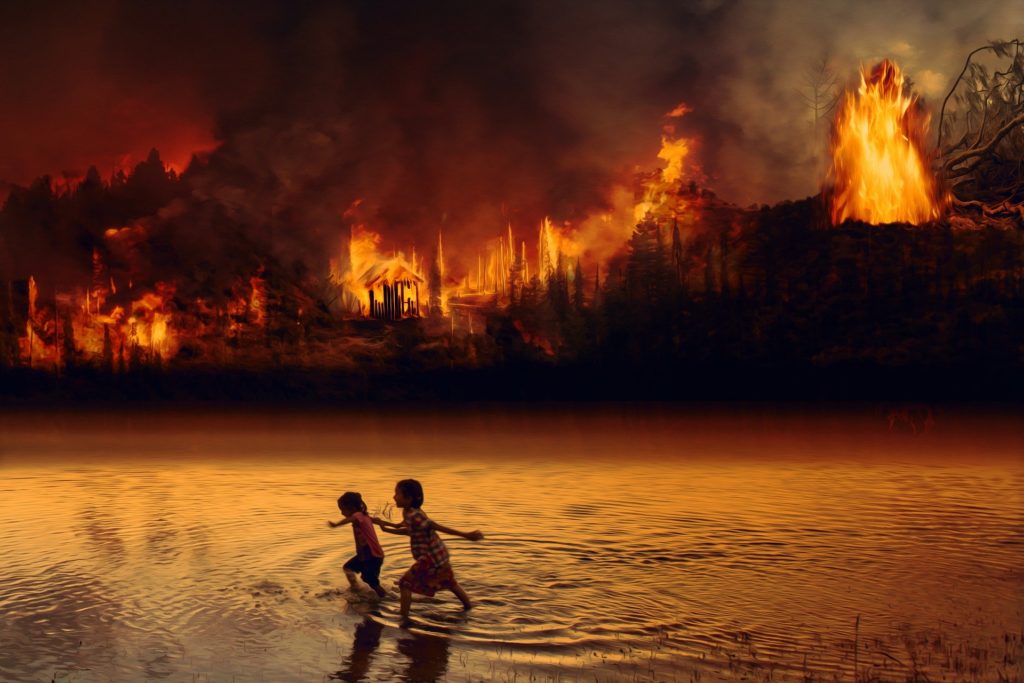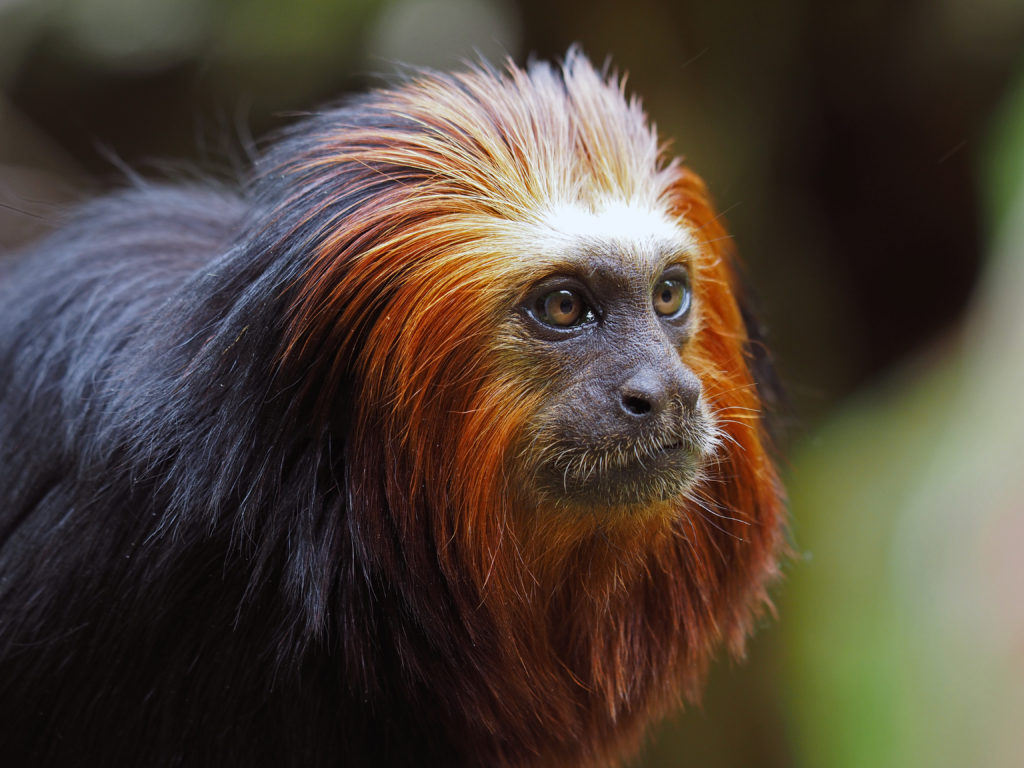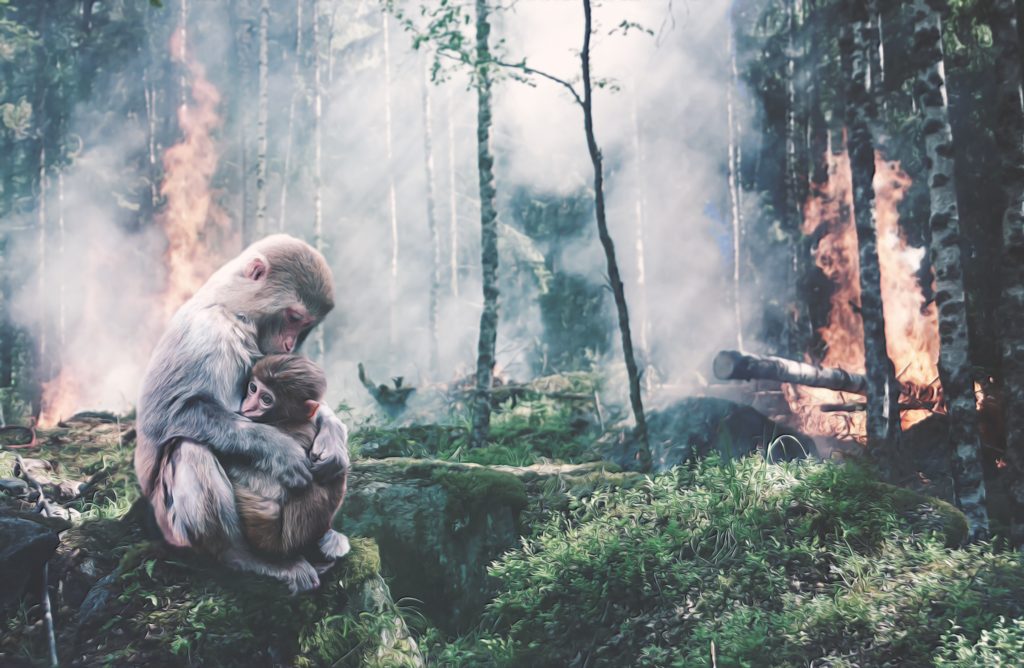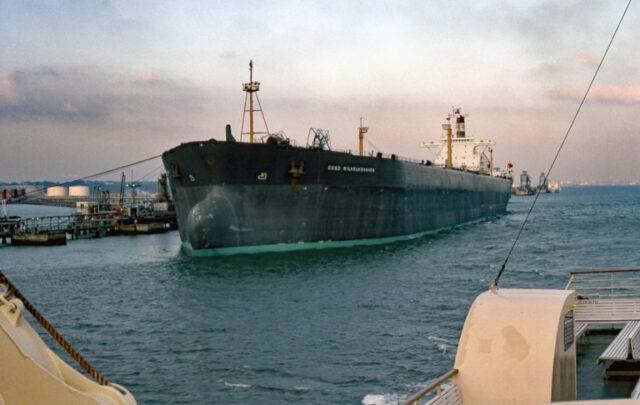We launch into 2020 with the continent of Australia ablaze. Mainstream media is regularly updating us on the fates of koalas and wombats, just as the fires in the Amazon captured global attention in 2019. At this crucial moment for Australia and the world, it is pertinent to take a step back from reactions to the ongoing flames and proactively revisit what happened in the Amazon—and why—before fires reignite in the dry season.
Fires in the Amazon were finally quenched by the arrival of the rainy season at the end of 2019, but not before more than 3,700 square miles of rainforest—the size of Qatar—were destroyed. 2019 marked the highest rate of deforestation in Brazil in over a decade. For all the money thrown by international organisations, conservation, and environmentalists at extinguishing the flames over the months, many companies have profited from the fires and reneged on deforestation pledges.

Fire demarcation
Agribusiness constitutes 20 percent of Brazilian Gross Domestic Product. The total GDP of the entire livestock chain in Brazil nearly doubled since 2008. Meatpacking companies were propelled into international markets with funding from the Brazilian Development Bank (BNDES). The main goals for the Productive Development Policy (the federal government’s financial framework to internationalize Brazil’s industries) set forth included: i) consolidating Brazil as the main global exporter of animal protein, and (ii) turning meat into the main export sector of Brazilian agroindustry.
Monopolies in agribusiness grew unchecked due to government loans, stocks, and political instability. As these companies grew without limits, the past year saw an 88 percent jump in deforestation. Of that deforested land in Brazil, 80 percent is used for cattle ranching. The economic development—or deforestation—of the Amazon has only been further solidified as a top priority in Bolsonaro’s administration.

Exploitative cattle ranching and its accompanied deforestation are not simple economic supply chain reactions to the demand of meat-eaters. Brazil’s government and the private sector have crafted the ideal policies and protections for meat-packing MNCs like JBS-Friboi—the world’s largest meatpacking company. The massive scandal of Joesley Day exposed then-President Temer’s bribery of hundreds of politicians. Joesley Batista of JBS-Friboi leaked tapes of the bribery, and then their own collusion was revealed; JBS spent almost $250 million bribing 1,829 politicians. The Brazilian stock market plunged nine percent the following day, demonstrating the power of one company over the entire nation’s politics and economy.

Joesley Batista
JBS shares have only continued to rise since the debacle. Companies operating agricultural supply chains within Brazil would either have to either leave Brazil or pressure the government for change and legal enforcement against their own economic interests to truly combat deforestation. The largest suppliers of beef to developed countries are still operating with companies who are profiting from illegal deforestation, with largely inconsequential reprimands.
The responsibility of major companies to act goes beyond vague moral responsibility. Nearly five years ago, big names including agribusiness company Cargill, Krispy Kreme, McDonald’s, and Dunkin Donuts made pledges of good will to clean up their agricultural supply chains in the Amazon. In 2009, JBS pledged a moratorium on the purchase of cattle from deforested land in the Amazon. Prior to 2009, 40 percent of their direct suppliers were linked to deforestation. By 2013, the number was reported below four percent. Closely following in 2014, Mars, Colgate-Palmolive, Walmart, Nestle, Tesco, along with governments and civil society groups signed the New York Declaration on Forests. The declaration included global targets to cut deforestation in half, restore 150 hectares of degraded landscape by 2020, strengthen forest governance and transparency, and reward countries taking action to reduce forest emissions. As of now, the five year assessment admits that we are nowhere near on track to meet these goals. With a behemoth like JBS on board leading the meatpacking industry towards a more forest-friendly future, the pledges seemed promising for a new relationship between cattle ranching and deforestation.
Pledges are only as legitimate as the actions supporting them, and JBS’ actions did not align with their moratorium. Operations were suspended in 2017 for land clearing practices in Brazil’s state of Para, the agricultural frontier bordering the Amazon. The company paid off the USD $7.7 million fine to IBAMA, Brazil’s environmental agency, for violating rainforest protection laws. In the same year, one of JBS’ suppliers, AgroSB Agropecuaria, was accused of illegal clearing, slave-like labor conditions, and even using pesticides to expel local communities, in a report by Amazon Watch. With financing from major importers and investors, big agribusiness can afford to ignore their pledges. The fines paid amount to peanuts in exchange for their continuing expansion, whilst the animals and indigenous people of the Amazon bear the true cost of losing their homes and the world’s largest forest.

The uncontrolled and haphazard slash and burn of rainforests teeming with unbeknownst biodiversity for agricultural commodities in Brazil is not an isolated phenomenon. When peatland burned in Indonesia in 2015, environmental author George Monbiot lamented: “The easiest way to clear the land is to torch it.” It is also free; a cost-cutting technique for meatpacking or palm oil companies to maximize profit.
The true value of the land in the Amazon is unquantifiable. Even the use of holistic environmental management systems, like payments for ecosystem services (PES), has been found to be inadequate for conservation goals. PES is a system which attempts to measure and pay for the services that an ecosystem provides to those maintaining the natural resource. An example is the value of a fresh water supply from a river ecosystem and the payments to those living along that river to ensure a reliable water flow. The first study of its kind in South America found that PES programs would take 180 years to make a dent in reforestation efforts. The value of the Amazon is hidden in medicines we have yet to discover (quinine, an anti-malarial medicine, is from the Amazon), cultural artifacts, indigenous practices honed over thousands of years, and the complex network of ecosystems that human life depends on.

Rather than meting out such payments to Amazonian indigenous communities to act as stewards of swiftly disappearing resources, the only payments garnered go to the meatpacking companies. The fines paid off to IBAMA do not regenerate what is already deforested. The value of human and non-human life is not measured against the growing profits of destructive commodities like palm oil, or exploitative cattle ranching around the world. Western countries critique the Brazilian government for increasing deforestation. Meanwhile, countries like France, Belgium, and Denmark are complicit by continuing to buy shipments of timber coming from illegally deforested lands. Amazon Watch’s report names 27 European and North American companies complicit with dirty supply chains and illegal deforestation due to imports of products like beef and leather.
The moral responsibility of these countries and companies and their public critiques of Brazil are contradicted by their sales records. The profits, tariffs, and taxes of these products constitute the economic viability behind increasing rates of deforestation – yet the innumerous animal lives lost and suffering of indigenous people are not negotiating points brought to the table to fight deforestation in Bolsonaro’s Brazil.

Corruption and scandals are nothing new in Brazil, but the environmental cost and loss of life is unprecedented. The repercussions of the drastic jump in deforestation this past year, demand for meat, rife corruption, and immediate future of the air we breathe can be compounded in a simple question: Who comes out on top if Brazil loses the Amazon? If the companies and individuals cutting corners, grasping loopholes, and lighting fires in the Amazon are not to be held accountable by Bolsonaro’s government, it will take relentless auditing by international bodies and NGOs like the UN and Amazon Watch to urge for truly transparent, zero-deforestation supply chains.
Before the rains dry up and the Amazon becomes susceptible to fires in 2020, stringent law enforcement must try to protect the burnt swaths of land to regrow. The wildlife and people who lost their homes this year will not recover easily, or at all, while the companies profiting from the destruction will continue to prosper.





